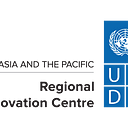The futures of production: peer to peer, commons and cosmo-localism… and what this might all mean for sustainable development
By Aafreen Siddiqui Sherwani
Albert Einstein once said “I have no special talent. I am only passionately curious.”
I spent my last weekend flexing my mental muscles by joining a group of ‘passionately curious’ people (development practitioners, engineers, policy-making experts and young students) exploring the ideas of peer to peer production, the commons, and cosmo-localism for sustainable development.
Cosmo-local development describes the process of creation of common goods through open, participatory production and governance processes. The workshop was a blend of anticipatory innovation and systemic futures thinking.
Day 1: Unpacking Open Innovations
Day 1 was about “the future that is already here, but not evenly distributed”: a drone overview of some of the most exciting open innovations across the globe. This is how we learned about Farm Hack, Le A’terlier Paysans, FarmBot or Hack the Water Crisis experiment in Cape Town. Each example was unpacked and we were then asked to re-imagine it (almost reverse engineer it) in an Indian context. What would these innovations mean for smart-agriculture in India, could they provide new ideas for the newly born Jal Shakti Ministry to be future-ready for India’s water crisis, etc. I could not stop imagining the marriage between Open Motors with India’s EV market- the ‘new’ buzzword in India’s mobility and business ecosystem.
It did not surprise me to see so many Indian innovators on Wikifactory. I also thought, however: could a platform like this add value to our in-house homegrown innovation networks like Honeybee and Atal Innovation Mission?. Michel Bauwens of the P2P Foundation shared some really interesting examples of peer to peer based open innovations from Europe. One of them that caught my attention immediately was Smart Coop- which is a new type of collaborative for freelance workers, based on a mutualization and pooling of resources. Imagine how a similar model might provide an alternative future for a gig economy like India wherein 6 million people are predicted to be joining the global pool of flexi-workforce!
We then took a detour to Australia where the Victorian Government is developing its Circular Economy Policy and Action Plan for converting waste into energy and putting people at the centre of their policy. Out of an enriching interaction with Andrew Lamb from Field Ready, I was left wondering with one big question: How many of us could have ever anticipated of disasters and calamities as a source of creating local livelihood opportunities?
Day 2: From imaginations and anticipations to ideation and experimentation
If day 1 was all about inspiration and opening new horizons, day 2 was about rolling up our sleeves and getting into prototyping mode. A democratic way of voting for the most pressing challenges of India was a fun exercise! Out of the 10 most pressing challenges, 3 found the greatest enthusiasm and hunger in the room: The Water Crisis, Promoting Active Citizenship and having Policy Innovation Labs. Engrossed into our discussions, we built a narrative around a preferred future, fleshed out the old and new assumptions and gradually realized that we are already building a prototype.
Way forward: Pursuing the prototypes
Towards the end of the two day learning mission, there were 3 prototypes on the whiteboard- a dream of city like Ghent with urban commons and active citizenship at its best, a dream of learning from Cape Town, California and China in making cities like Chennai, water-resilient and finally a dream of beginning our efforts towards advocating for a Policy Innovation Lab in Maharashtra . It was an exciting learning journey that took us around the world and back into real-world experiments for the Indian context. We pledged to keep the conversation going to push the agenda to the next level leading to experiments from the white board to the real-world!
With a big thank you to Jose’ Ramos, Director of Action Foresight, for being a great facilitator and pushing our imagination towards anticipatory innovation. I also take this opportunity to thank and extend hands for an energetic association with Dr. Shishir Jha and Dr. Raji Alwani from the Centre for Policy Studies, IIT-Bombay
Aafreen works for UNDP India as the State Focal Point, Maharashtra. Being a policy innovation enthusiast, she is also engaged with Regional Innovation Centre for the NextGenGov initiative of UNDP. If you have any ideas, collaboration or queries, do reach out to her at: LinkedIn: aafreensiddiqui, Twitter: @afreenundp, Medium: https://medium.com/@afreen9684
